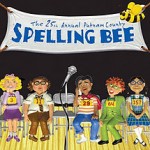There are specialized comment rules for this post, make sure to read them before commenting.
In the inaugural Atheist/Christian Ideological Turing Test, I asked the participants to answer questions about evidence (What shapes your current beliefs? What would convince you otherwise?). That prompt turned out to elicit pretty dull and easy to predict answers, so, in 2012, I switched to a weirder theme and asked contestants to talk about authority and aesthetics.
And now “Sumer Is Icumen In/Lhude sing cuccu!” (Which is quite apropos, as cuckoos are brood parasites — they’re good enough at mimicking the eggs of other birds that they can pass off their offspring to other birds’ nests). So, it’s time to pick themes and formats for this year’s contest.
I’d quite like to experiment with something a little closer to the traditional Turing Test — chat transcripts, where contestants have to think on their feet instead of being able to prepare and polish their answers, but I’m concerned it will be gamed in boring ways. Testers might default to asking trivia (“What was the Pope’s old name?” “What are the criteria of the Lemon test?” etc). So, I’d like to be persuaded into this format, but I need a way to set it up that incentivises the player and the proctor to be interesting.
To pass a straight Ideological Turing Test, you can always just try to rely on Poe’s Law and try to imitate the worst of the opposing ideology, confident that it represents some subset of the group. The equivalent in a computer Turing Test is just cussing out the interlocutor. Anger is very easy to duplicate; it doesn’t require you to listen to your partner.
Since these entries are public, I want to be able to learn a little more from them than what I could get trawling comboxes. I like players to try to understand what the other ideology feels like from the inside. What is your opposite number trying to protect? Where do they anticipate threats? What delights them?
One idea I’ve been kicking around is making everyone write on the four loves. Not the Lewis book specifically, but storge, phileo, eros, and agape. Do contestants think this is a useful taxonomy? Have they got an alternate arrangement? How do they find these categories differ? Are any currently neglected? How would you help strengthen/support them?
Players and judges will have more trouble anticipating the answers for a prompt along these lines. That makes this not a very useful sorting criteria (heck, if that was we cared about, we’d stick with giveaway jargon and analysis of social connections). But I expect it will make writers and readers think harder and differently about what matters most to opponents and what shapes their judgements.
So, have at it. The floor is open for suggestions. To make my life a little easier, I’m splitting the combox into specialized threads. That means you should not be posting top-level comments. You should only be replying to other commenters or to one of my category comments. They are as follows:
- Topic/Theme Suggestions – What ideas would you like atheists and Christians to play with, both as themselves and as they imagine their opposite number would?
- Question Suggestions – Specific prompts/questions/tasks, as opposed to general topics above.
- Format Suggestions – How would you set up a chat contest? Are there other formats besides short essays I should consider.
- Meta Thread – Have a comment about the Ideological Turing Test that goes beyond suggestions? Critiques, philosophical discussion, etc goes here.
- Double-Meta Thread – Complaints/discussion only of the way I’ve structured the comment rules for this post.













